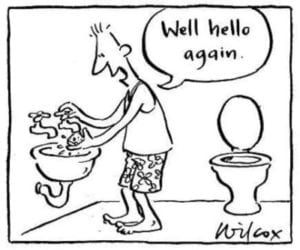The 9th International Water Association (IWA) Conference and Exhibition on water reclamation was held last week Windhoek.
The event had a special focus on sustainable water usage and efficiency. More than 400 international scientists, engineers and water researchers met to compare notes and embrace new technologies on effective water reclamation practices; irrigation; potable water re-use; desalination; climate change and groundwater recharge. IWA executive director Ger Bergkamp says it is predicted that water reclamation is expected to become an essential practice in many countries. In the past, we saw the main application of water reuse in agriculture, but now there is an increasing interest to develop other water reuse opportunities,” he explains.Programme director and the conference chairperson, Piet du Pisani told the delegates that optimal use of available resources is an important pillar on which the future must be built. Du Pisani said since Windhoek’s first reuse of treated sewage water reclamation plant in 1969 at Goreangab and the induction of artificial recharge of the Windhoek in 1997, the practice has become the City’s medium term solution for water supply.
Waste water should no longer be viewed as a waste product but similar to sea water and be seen as a special resource which with special treatment can supply in the ever growing needs of humanity. Water reuse is the answer to looming water shortages. It is a solution that is increasingly viable for communities as the cost of cleaning and piping water increases. Water reuse plants of the future are aiming to be carbon-neutral and reliant on autonomous energy supply rather than use of energy from the power grid. Delegates at the event visited the Goreangab Reclamation Plant and the Gammams Waste Water Care-works, Windhoek’s Aquifer Recharge Scheme as well as the Von Bach-Swakopport Water Supply Scheme.






